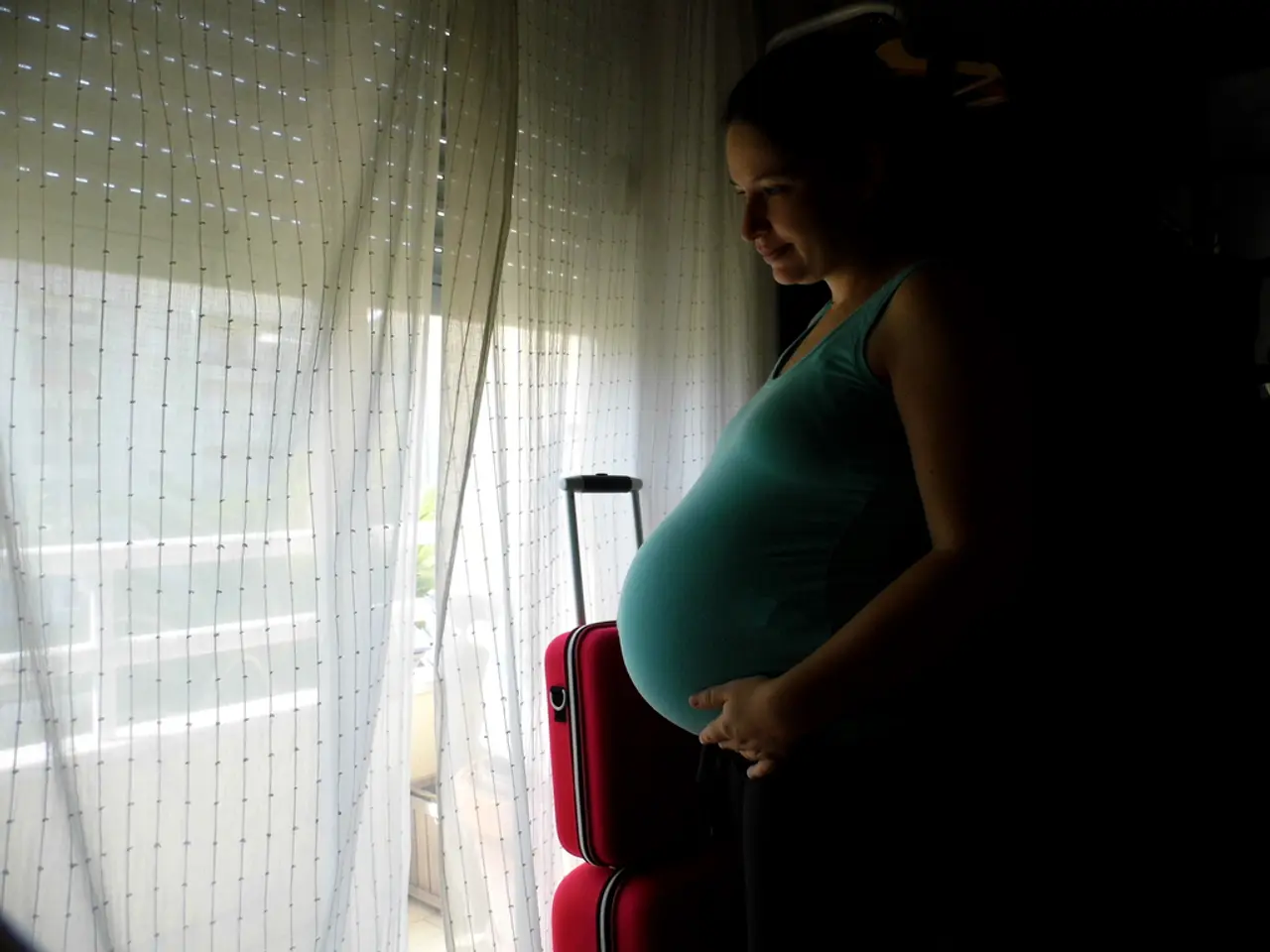Mysteries surrounding pregnancy unveiled: Key insights
Cryptic pregnancies, also known as stealth pregnancies, are a relatively rare yet concerning occurrence where a woman remains unaware of her pregnancy until late in the term or even during labour. Despite the lack of typical pregnancy symptoms, some signs may be present, albeit subtly.
In these instances, a woman might experience sore or swollen breasts, light spotting, mild nausea or vomiting, fatigue or unusual sleep patterns, cramping or bloating, constipation, frequent urination, sudden food aversions, or a combination of these symptoms. These signs, however, can often be mistaken for other conditions, making the diagnosis of a cryptic pregnancy challenging.
Several factors can contribute to cryptic pregnancies. Irregular periods, false negative pregnancy tests, psychological denial, lack of prenatal care, and the use of birth control can all play a role in delaying the diagnosis.
Psychological denial, stemming from stress, past trauma, or fear, can cause a woman to overlook signs of pregnancy. Similarly, not seeking medical care can lead to undiagnosed pregnancies. Even with birth control, pregnancy can occur, and symptoms might be attributed to other causes.
Cryptic pregnancies can lead to significant psychological and health risks. The sudden discovery of pregnancy can cause fear, confusion, and panic. Feeling unprepared may lead to anxiety or postpartum depression. The surprise nature of the pregnancy can also hinder emotional connection post-birth. Lack of prenatal care can lead to complications during delivery and for the baby.
It's crucial for anyone experiencing pregnancy symptoms to consult with a doctor to confirm the diagnosis or provide emergency care if necessary. If someone believes she is pregnant but the urine test is negative, she should test her urine again in a few days. If the test is still negative, she should speak with a doctor and request a blood test.
The most specific and accurate pregnancy test is a blood test, which checks for the presence of HCG in the blood. However, some brands of pregnancy tests are less reliable than others, and their sensitivities may vary from test to test.
Researchers have suggested that younger age, learning disabilities, poor social and family support, mental illnesses, and a history of drug use may be factors contributing to cryptic pregnancies. However, the causes are not yet clear.
Cryptic pregnancies have been found to occur more often than doctors might think, with rates varying between 1 in 475 people to 1 in 516 people at 20 weeks. Being unaware of pregnancy may mean a person does not receive adequate care or make healthful lifestyle adjustments, which can lead to complications in fetal development.
In some cases, a person may experience a lack of emotional significance to pregnancy and is unaware that they are pregnant, possibly avoiding seeking medical attention. This phenomenon is known as pervasive denial of pregnancy. Different types of denial in cryptic pregnancies include affective, psychotic, and pervasive.
Psychotic denial of pregnancy may occur in people with mental illnesses such as schizophrenia or bipolar disorder, who may link symptoms of pregnancy to delusional causes. It's essential for these individuals to seek medical help as soon as possible to ensure a healthy pregnancy and delivery.
The sooner a person confirms pregnancy and begins receiving appropriate care, the higher the chances of a successful pregnancy. So, if you suspect you may be pregnant, don't hesitate to consult with a healthcare professional. Your health and the health of your baby depend on it.
A woman might experiene subtly noticeable signs of a cryptic pregnancy, such as sore or swollen breasts, light spotting, mild nausea or vomiting, fatigue or unusual sleep patterns, cramping or bloating, constipation, frequent urination, sudden food aversions, or a combination of these symptoms, even if they could be mistaken for other conditions.
The diagnosis of cryptic pregnancies can be challenging, considering factors like psychological denial, irregular periods, false negative pregnancy tests, lack of prenatal care, and the use of birth control can all contribute to delays in diagnosis.
If a person suspects she is pregnant, it's crucial to consult with a doctor to confirm the diagnosis and ensure proper prenatal care, as cryptic pregnancies can lead to significant psychological and health risks, including complications during delivery, fear, confusion, panic, anxiety, and postpartum depression.








